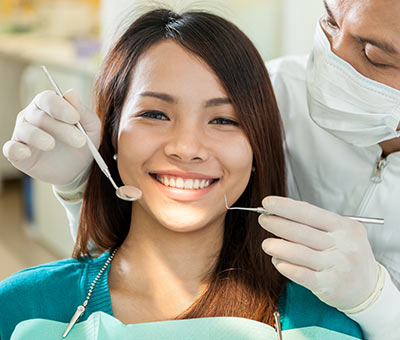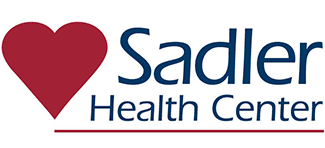Routine dental treatment is an important part of staying healthy. Oral disease is linked to other medical ailments such as diabetes and heart disease that limit the quality of life. Through the pandemic, for many, medical care, including dental care, was set aside.

Sadler’s general dentistry for adults and children meets most oral health needs. That includes cleaning, tooth extractions, fillings, preventative care, and some restorative treatments to reverse damage to teeth and gums, all delivered by skilled dentists and hygienists trained in public health.
Sadler continued to offer services through the pandemic, providing services for emergency visits, allowing patients with tooth and gum pain to get dental care from experts, rather than reporting to ER’s or urgent cares.
“We accepted regular patients for emergencies, and we accepted new patients who didn’t have anywhere else to go because their own dentists weren’t seeing them,” says Dental Manager Kimberly Bury. “It felt really wonderful to be able to supply those services.”
The slowdown of patients gave the dental office time to revamp their services and fine-tune their procedures. In June 2020, Sadler’s dental office started new procedures including increased use of PPE, changing full-length gowns between appointments, face shields and protective glass, purifiers and construction of a negative pressure room, which allows staff to treat emergency patients even if they show symptoms of COVID or other communicable diseases.
The procedures and renovations were designed with guidance from the CDC, OSHA, and the American Dental Association. Whichever was strictest was the one that Sadler staff chose. The new practices and spaces protected staff as well as patients.
“We’re confident in our ability to keep patients and ourselves safe,” says Bury. “This has become our normal practice. It hasn’t been too challenging because we’ve always had a lot of these practices in place to protect our patients. The environment has been safe, but the awareness around COVID has reminded and reeducated staff how important it is to follow established protocols.”
Returning for care may be difficult, because some dental care or oral disease is farther along, but the dental team is ready to address needs in the community.
“There’s no time like the present,” says Bury. “These things are not going to get better on their own. You need intervention. We’re here, we’re safe, and we want to help you.”
Please contact us at (717) 218-6670 to schedule an appointment.
